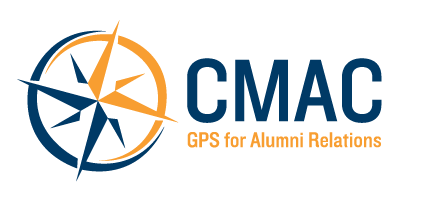This week on Alumless, we're excited to feature a conversation with special guest JT Forbes, President and CEO of the Indiana University Foundation. Before taking over the reins at the IUF, JT led the Indiana University Alumni Association as the CEO for almost 12 years. During that time, JT established himself as one of the top leaders in the field. We'll discuss his work at the IUF with JT, whether his philosophy around alumni engagement has changed, and how he's worked to help bring together two separate organizations and create a united approach to philanthropy.
Read MoreThe CMAC Blog
Our musings on alumni and donor engagement…
What should the “North Star” for universities and alumni boards be during periods of change or transition? I’ve found that when alumni leaders and volunteers prioritize these three key areas, growth occurs, and a more vibrant dynamic develops.
The traditional model of separate alumni engagement and annual giving teams creates artificial barriers between two departments serving the same constituents. Alumni don't view their relationship with their alma mater through departmental silos – they see ONE institution that they either feel connected to or they don't.
For those alumni leaders who invest in engagement metrics and reporting, there are many opportunities to use the data to improve overall operations, all while showcasing the incredible value of the work. Here are just a few of them:
Alumni engagement is often perceived as a “nice to have” rather than a mission-critical component of institutional strategy. Engagement professionals are sometimes seen as “party planners” representing a cost center rather than powerful contributors to the bottom line.
Sometimes, as alumni professionals, we get complacent and don’t think beyond the types of events that will draw a crowd. We forget that the point is not to register people but to communicate a message about philanthropy.
The problem is that there are few volunteer opportunities at most colleges and universities. The existing ones are often different types of boards or councils with few spots available. Most of these boards exist almost exclusively to create more events! I firmly believe that more events aren’t the answer.
Check out this Alumless episode from Friday, July 19th, 2024, where we dive into annual giving strategies. We're thrilled to feature Howard Heevner, Executive Director of Annual Programs at UC Berkeley. We'll discuss systemic challenges in annual giving, innovative approaches to connecting with rising generations, and the findings from a major alumni giving study. Plus, hear about Howard's insights on providing personalized giving opportunities and the impact of giving days on universities
We've got a great show for our Alumless community this week. Join us for a conversation with Charlie Melichar, Principal at Foster Avenue. In the episode, we'll discuss best practices for campaign communications and how advancement leaders connect mar/com work with engagement.
Those alumni participating in large-scale mentoring programs or as leaders of online groups are a natural fit for recruitment to serve on our board-based volunteer opportunities.
Read MoreDonors, with alumni represented as the primary and most important stakeholder group, must be reached where they already are each and every day.
Read More











